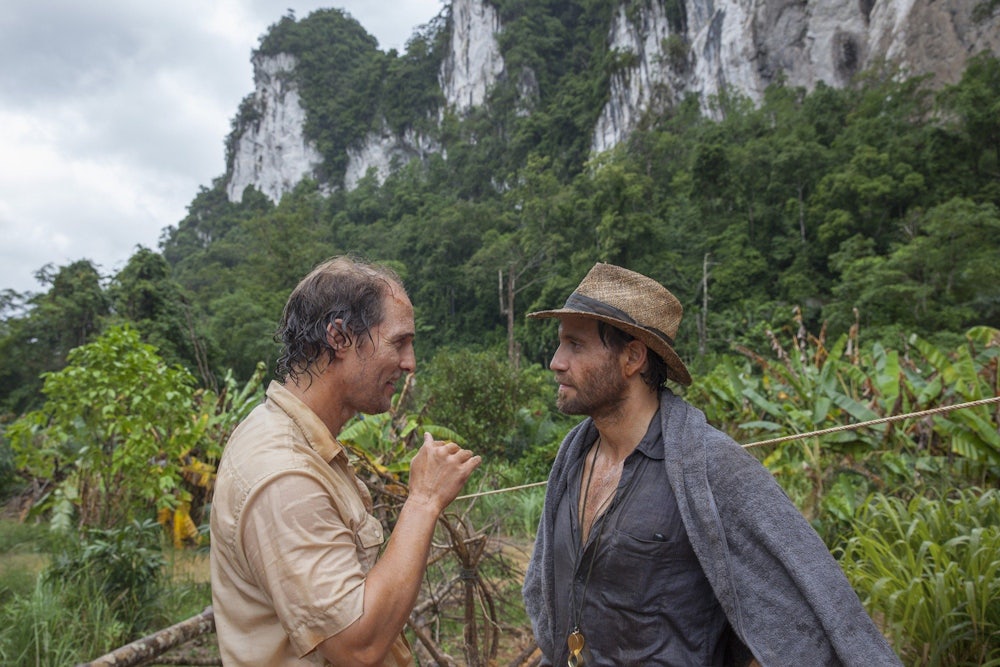On our weekly podcast we often review movies suggested to us, and likely because of the age of many of our listeners, we are often directed toward films made in the 1980s. These movies are all different (Tom Cruise is a bartender! Andrew McCarthy pretending a dead person is still alive! Dan Aykroyd and Eddie Murphy are swapping stations in life!) but they all seem to share a bond: The naked, unapologetic pursuit of massive wealth. In these films, there are few warning sign about the dangers of greed, no nod to the idea that one’s brazen accumulation of wealth might come at a cost to your fellow humans. The message is simply, “Get yours.” These movies were full of cheerful, naïve white boys trying to get themselves as rich as possible. There were plot complications, but ultimately they ended up with their yacht and the girl too. The cynicism and occasional nihilism of the 90s put a brief end to this. The great films of that decade (Goodfellas, Pulp Fiction, Fargo) were about the moral perils of avarice and indulgence. Only the bad guys cared about getting rich.
Well, the 80s are back. One of the many reasons that Gold, starring Matthew McConaughey as a smooth talking gold hustler, doesn’t work is that it never stops to consider that its main character might be a jackass. Sure, McConaughey is uglied up with a greasy bald head and a hefty paunch, but there isn’t a moment the film doesn’t consider his Kenny Wells an American hero. Wells is a gold prospector in 1980s Reno trying to keep his family business afloat through a series of increasingly desperate schemes. He is assured that someday his ultimate goal—to make himself and everyone in his life obscenely rich—is just around the corner. He meets handsome geologist Michael Acosta (Edgar Ramirez) who is convinced there’s gold in Indonesia, and after a bout with malaria he wakes up to Michael telling him they’ve found a goldmine. Everybody gets rich, and the rest of the movie is about Kenny attempting to hold onto his wealth.
What you expect from a story like this is that Kenny will have a rise and a fall, that the perils of his newfound windfall will manifest itself in unexpected ways, that this greenhorn to the financial industry will be overcome by his own greed. But that’s not quite how it plays out. You meet all sorts of creepy, slimy financial types (one of whom is Corey Stoll, again much better than the movie he is in), but they’re really presented as being on Kenny’s side.
The only goal of anyone in this movie is to get rich, and the only bad guys are the ones who attempt to stand in their way, whether it’s a curious investigator (Toby Kebbell) or various fraudsters who pop up along the way. The goal is wealth for wealth’s sake: At one point Kenny attempts to argue “it’s not about the money, it’s about the gold,” and you’ve never believed anybody less. Gold is not a cautionary tale about excessive wealth, it’s a cautionary tale about making sure nobody stands in the way of your quest for excessive wealth.
Gold is also sloppily constructed. You wonder if there was some last-minute reconstruction and reshuffling; Kebbell, a vital character, is actually introduced halfway through themove even though Kenny has been talking to him all along. The movie progresses in such fits and starts—Kenny is happy! Kenny has a setback! Kenny gets a win! Kenny has another bad day!—that it’s difficult to build up momentum. There’s an all-timer of a Thankless Girlfriend role for Bryce Dallas Howard, who pops up occasionally to provide Wells comfort or to tell him he’s losing touch with Who He Is, and a series of red herring supporting characters who exist mostly to run into the room with important plot developments and then disappear
McConaughey himself is fine, one supposes, he is mostly in disguise under his baldness and his flab, doing the best he can to provide some verve to this dull character. McConaughey tries to turn him into some sort of blue-collar, sleeves-rolled-up capitalist legend, but the movie isn’t focused enough to do much more than just give him room to chew scenery. (He’s also almost too proud of his girth: You can almost imagine McConaughey winking at the camera, I’m gonna lose all this fat for my next movie, don’t you worry.) The movie is a mess, but it’s also an oddly amoral mess. There is no nod to the fact that Kenny and his pals may be exploiting the Indonesian people in their search for gold on their land, no idea that maybe all of these corporate parties are in fact their own horror, no admission that maybe Kenny is a swindler who’s bad for humanity himself. They are just a bunch of people trying to get rich, and stay rich.
Grierson & Leitch write about the movies regularly for the New Republic and host a podcast on film. Follow them on Twitter @griersonleitch or visit their site griersonleitch.com.
